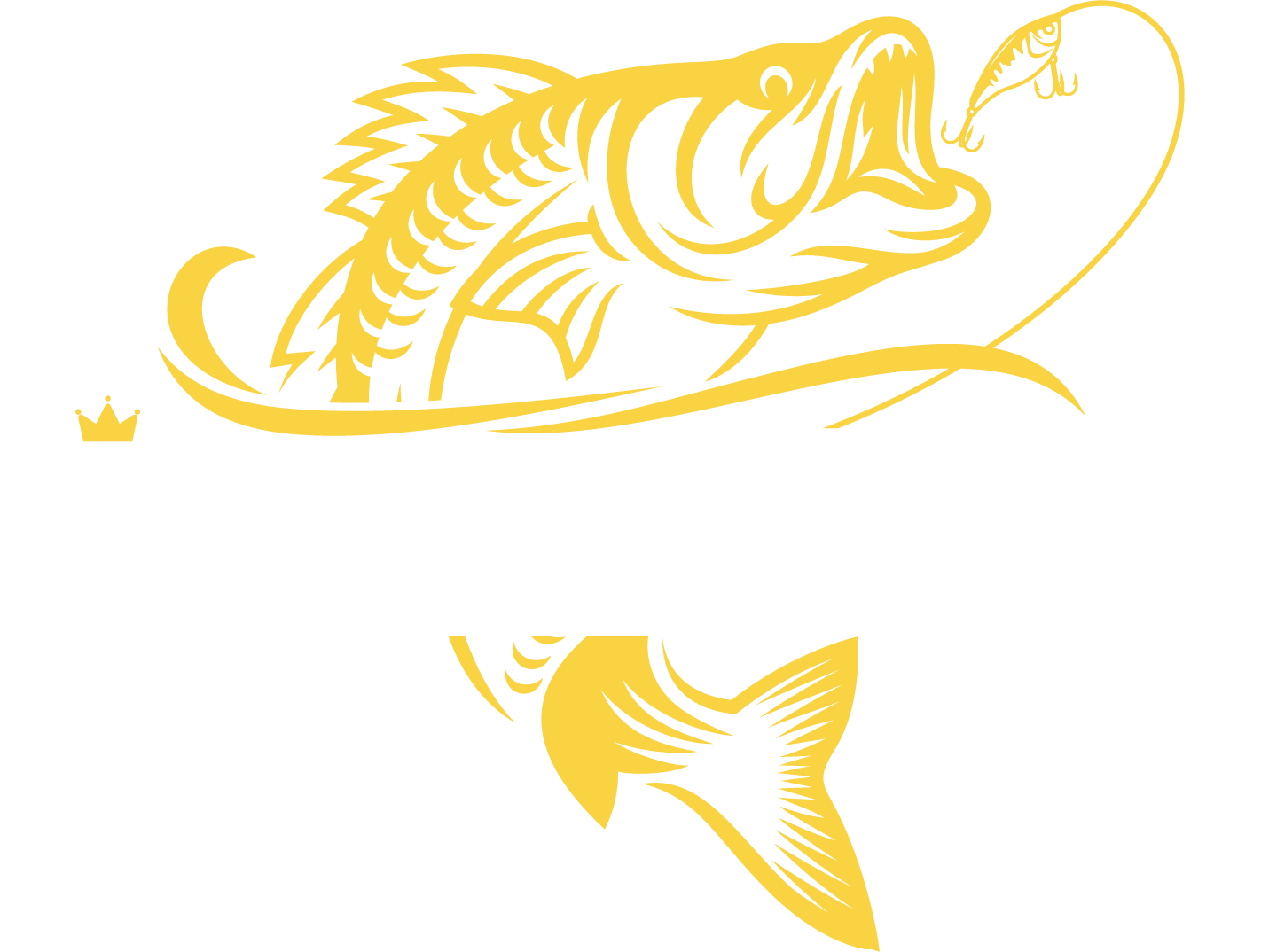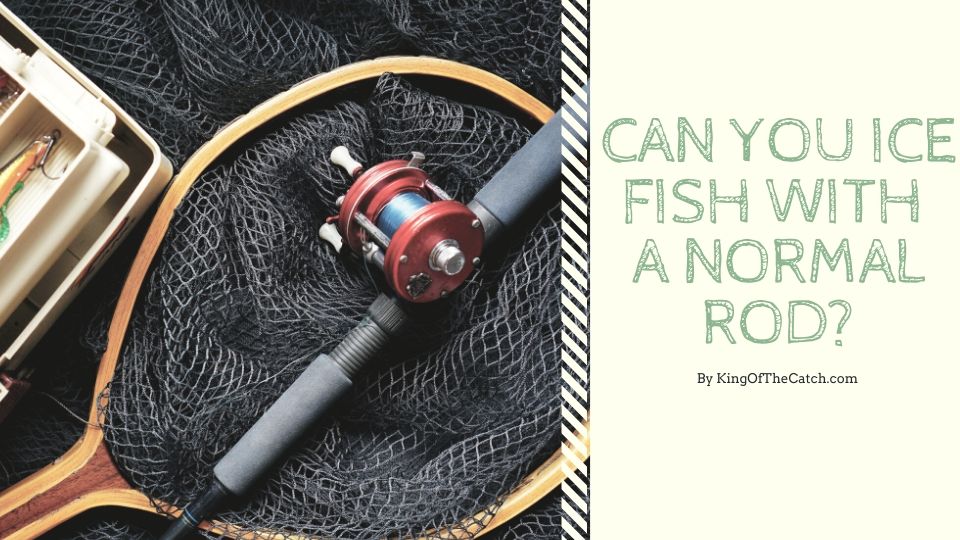With the onset of winter, comes one of my favorite activities, which is ice fishing. The time is finally here to bring out those ice fishing gears and prepare the augers/drills for the ice. I’ve been in love with ice fishing ever since I caught my first fish in the ice.
When it comes to ice fishing, one of the most commonly asked questions that I see on the internet is what kind of rod to use and can you use a normal rod for ice fishing. I’ve personally been asked these questions as well. And for that very reason, I am here to answer these questions once and for all.
Ice Fishing With a Normal Rod?
Most ice fishing enthusiasts like myself use a specialized ice fishing rod that is much smaller and lighter than regular rods. But are those little rods necessary for ice fishing? There are many advantages to those rods which you might not see unless you use it. I’ve provided more details below, so read on to find out more about it.
But to answer the question of the day, can you use a normal rod for ice fishing? The simplest way to answer this is yes! A normal fishing rod is still a fishing rod, and there’s no reason you wouldn’t catch a fish with a normal fishing rod. A lot of people do it, and you wouldn’t be the first person in the world.
However, a specialized ice fishing rod has more advantages than a normal fishing rod, which will provide you with a better ice fishing experience.
Ice Fishing With a Normal Rod
Even though I use a specialized ice fishing rod now, I didn’t always have one. When I first started on my ice fishing expedition, I used a larger rod that you would normally use on open waters.
I did so because I wasn’t ready to spend a huge amount of cash on ice fishing gear. And also because I wasn’t fully aware of the advantages that come with an ice fishing rod.
However, it is safe to say that I did have a lot of fun with my old fishing rod. I caught some great fishes with my buddies before I went out to get my very own ice fishing rod.
Ice fishing is personally one of my favorite activities, but it’s not for everyone. This is why if you’re only starting out with ice fishing, I’d recommend you do the same thing as I did.
Start with your normal rods, and if you like the activity, you can get yourself some specialized ice fishing rod. If not, you will have saved a lot of money by not buying some ice fishing gear, which you will likely never use again.
If you have a regular fishing rod at home and you want to try ice fishing, here are some few points you can follow to catch some fish:
- Try to use a light line and also pick the rod, which is shorter and more sensitive. It is hard to detect bites under the ice, so this way, you will feel the tug when a fish comes and bite your bait.
- It can be hard to control your rod when you’re trying to pull fish from 6 feet away through a small hole. So when a fish bites your bait, make sure that you don’t cut the wires from the edge of the ice.
- When your ice fishing with a normal rod, try dead sticking instead of jigging. Dead sticking with live bait allows your rod to stay stationary, and you can easily feel the bites on the tip of your rod.
Ice fishing with a normal rod limits your movement and requires more time to learn. However, once you get the hang of it, you can actually catch some fish, and you’ll be ready to use a specialized ice fishing rod. In case you want to save some money, you can also make an ice rod with a normal rod.
What makes an ice fishing rod special?
If you’ve thought there’s not a lot of difference between ice fishing with a regular rod and an ice rod, you’re wrong. I’ve listed some of the ice fishing rod features below to show you why you should use an ice fishing rod.
Ice rods are shorter than normal rods: Ice fishing rods mostly measure about 18 to 48 inches, which is much shorter than the rods you use in open waters. Your normal rods can measure up to 6-12 feet, which is not ideal for ice fishing.
The short length of the ice rod gives you better control and allows you to stay directly above the hole. You can also use an ice rod in small crammed up space like a shelter, a pop-up, or even a shack. Small rods also make it easy to maneuver around fishes that are trying to escape.
Ice rods have more sensitivity: As already mentioned above, detecting fish bites under thick ice can be difficult. That is why ice rods come with more sensitivity for you to register those bites. More sensitivity means fewer missed fish bites. If you want to know more about detecting fish bites, you can watch this video here.
Ice rod makes fighting fish easier: If you’ve ever tried open water fishing and ice fishing, then you know they are different from one another. When you’re fishing in open water, you will not find any problem even if the fish swims in different directions. But if a fish swims in different directions under ice, you can have a snapped line from the edge of the ice.
I myself have experienced this more often than I can remember, especially when I use a normal rod.
But with an ice rod, you can dip the tip of the pole inside the hole to prevent cut lines. This will also give you better control when the fish is trying to run.
What is the best ice fishing beginner set?
You should use an ice rod depending on the type of fish you’re fishing. My top favorite ice fishing set for beginners is the Shakespeare GX2 reel and rod set.
Want to learn more?
You can read here more information about how much fishing line you need for ice fishing, best underwater ice fishing camera, fish finders for ice fishing and of course nice warm clothing like jackets, gloves, boots and even float suits!
Conclusion
There it is! I hope this article answers the question you have about ice fishing with a normal rod. You can use them if you’re trying it out for the first time, but if you want to get the best experience and amazing catches, then you’re better off with a specialized ice fishing rods.

Niels Thomas is a wildlife expert and fishing fanatic that works with major fishing brands like Deeper Sonar, Abu Garcia, Berkley, PENN, BassPro and Pure Fishing. Through sharing the best fishing tips, tricks, gear reviews, locations and much more he hopes to inspire fishing fanatics to start their own journey towards becoming the King of the Catch!


